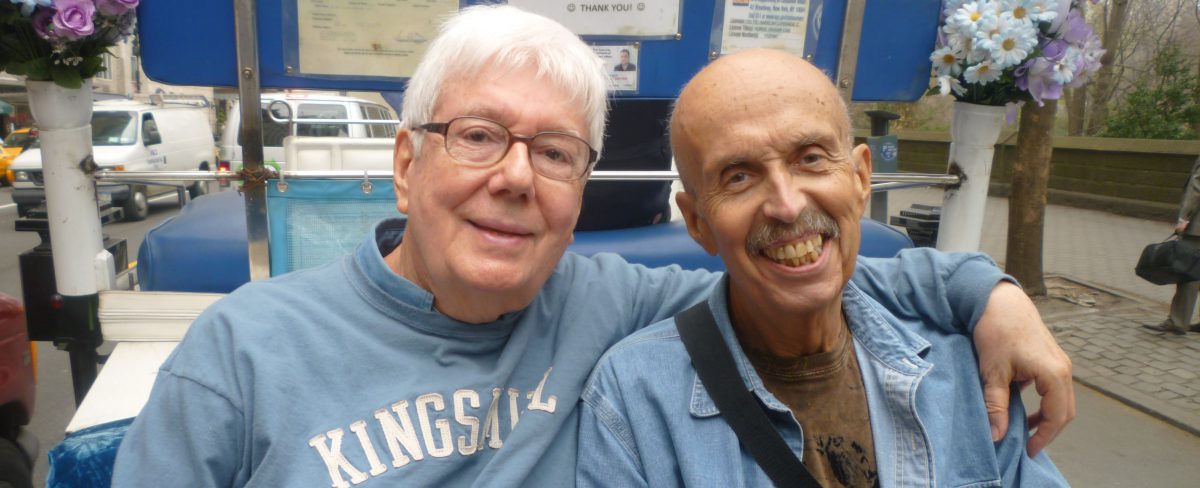I was a child of radio for a good ten years before television elbowed the use of imagination aside. They were good years indeed, and I was glad to have them. I’d sit, rapt, beside a large, floor model radio, (they were elaborate pieces of furniture then), staring at cloth covered speakers, listening intently to the most splendid voices, and picturing them with all my might.
Some of these voices were so distinctive that I could pick them out no matter the program. I got to know their names. Ralph Bell had a smirk in his voice. His specialty was being the smartest crook in the room, calm and contemptuous of the rest of his gang. Anne Seymour‘s voice throbbed with suppressed tears. If you needed a long suffering mother or an ill used wife, call Anne Seymour. A great voice, no question, but given what it signaled, sometimes I wished she’d just go away.
The first voices I can remember focusing on were Miriam Wolfe and Brace Beemer. Beemer was the Lone Ranger. His deep baritone dripped testosterone and safety. Nothing could go wrong when that stirring, coal black voice spoke up, even in a whisper to Tonto.
Miriam Wolfe was part of the repertory cast on the Saturday morning children’s show, Let’s Pretend. Her rich, throaty contralto made her the ideal cackling witch or cruel stepmother. Versatile as all get out, she could, of course, play warm and kindly roles, but nobody could cast as chilling a spell as Miriam Wolfe. Years later, I caught her on rebroadcasts of a spine tingling series out of Oklahoma City, Scott Bishop’s Dark Fantasy. There she was again, freezing everyone’s blood with her deadly curses.
The audio palette of my childhood was limited to the basics – sweet, sinister, trustworthy, cowardly, corrupt, scheming and a few others. Adolescence expanded the rainbow to include sex. For me, the sexiest voices on the air were Tom Collins and Cathy Lewis.
Tom Collins was Chandu the Magician. His low, commanding voice gave me shivers of pleasure. How I wanted to be his nephew, sharing his exotic, hair raising adventures. What a Batman Collins would have made.
My favorite of all radio voices was Cathy Lewis. Nothing was beyond the range of her expressive pipes. Early on, she wanted to be a singer. I’d love to have heard that, but there’s nothing on record. She could purr, but there was always a no-nonsense, street smart subtext. She was equally convincing as adoring wives and femmes fatale. Lewis acquits herself brilliantly with Robert Taylor in the best ever episode of Suspense, the horrific “House on Cypress Canyon.”
Cathy Lewis was my reason for listening to My Friend Irma. I was as allergic to Irma Peterson’s moronic schemes as I was to those of Chester Riley, but friend Jane, as voiced by Lewis, is a refreshing blend of cultured, sardonic indulgence. I remember an episode where Jane is dying to get tickets for A Streetcar Named Desire, but Irma keeps screwing things up. During the show’s popular run, Lewis fell ill. For a time, Joan Banks filled in, and Jane faded to bland.
Lewis was married for fifteen years to the brilliant and busy Elliott Lewis. These days, I’m listening to a show they did in 1953 and ’54, On Stage.

Elliott produced the show. He had a hand in everything then. He was unforgettable as the hilariously depraved and dissolute Frankie Remley on The Phil Harris and Alice Faye Show. He’s a shrewd and flexible actor, and it’s a treat to hear him and Cathy together. In the first episode, a bit part is played by Mary Jane Croft who would eventually become his second wife. Hard to fathom parting from a woman with as delicious a voice as Cathy Lewis. But as I listen to these programs, none of that has happened yet. That is years away. Here are two people happy in the pleasure of each other’s company and talent. On Stage is a sonic photograph of a couple still in love.
